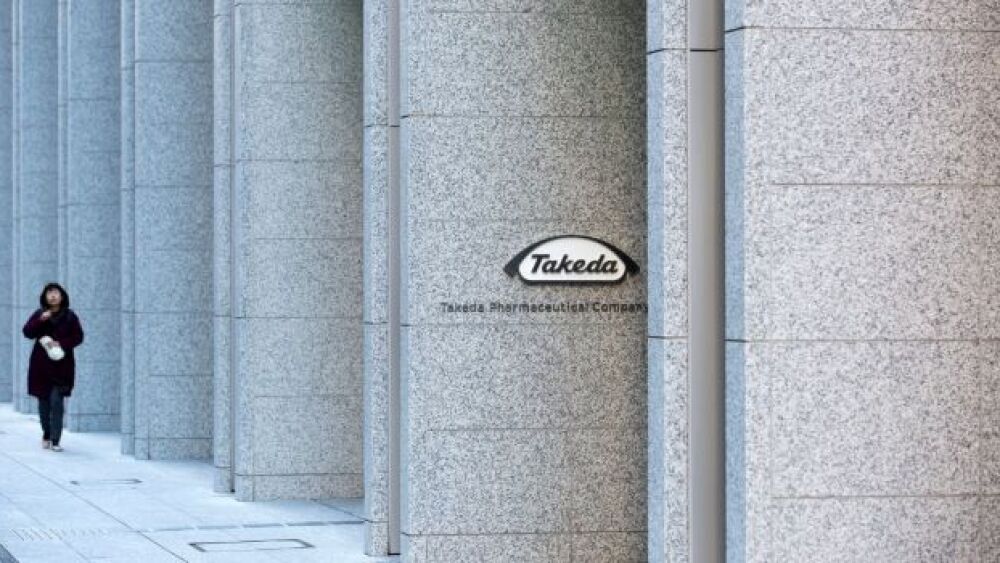Takeda announced results from its Phase III clinical trial on TAK-003, its dengue fever vaccine candidate, at the Northern European Conference of Travel Medicine.
Courtesy of Tomohiro Ohsumi/Getty Images
Takeda announced results from its Phase III clinical trial of TAK-003, its dengue fever vaccine candidate, at the Northern European Conference of Travel Medicine. The data showed that TAK-003 produced protective results through 4 and a half years and helped reduce hospitalizations and symptomatic dengue illness overall.
Dengue is a viral disease spread mostly by Aedes aegypti mosquitos and Aedes albopictus mosquitos. It is the fastest spreading mosquito-borne viral disease, and in 2019, the World Health Organization named dengue one of the top 10 threats to global health. Approximately half of the world now lives under the threat of dengue, which is estimated to cause 390 million infections each year.
Takeda is targeting dengue with TAK-003, a tetravalent vaccine candidate based on a live-attenuated serotype 2 virus. The vaccine is being tested in several clinical trials, enrolling more than 20,000 healthy children and adolescents, ranging from four to 16 years old, across eight dengue-endemic countries. Previously, Takeda’s Phase II data in children and adolescents showed the vaccine induced immune responses in all four dengue serotypes in both seropositive and seronegative participants.
To further test TAK-003, Takeda performed the Phase III Tetravalent Immunization against Dengue Efficacy Study (TIDES) trial. Participants received two doses of TAK-003 to prevent dengue fever of any severity and caused by any of the four dengue virus serotypes in children and adolescents. Participants were randomized 2:1 to receive two doses of TAK-003 0.5 mL or placebo at months 0 and 3.
The results showed that over four and a half years, TAK-003 demonstrated 84.1% vaccine efficacy against hospitalized dengue. The efficacy varied by serotype: 85.9% VE in seropositive individuals and 79.3% VE in seronegative individuals. In virologically confirmed dengue, TAK-003 also demonstrated vaccine efficacy of 64.2% in seropositive individuals and 53.5% VE in seronegative individuals.
Additionally, no important safety risks were identified in the trial, and the vaccine was generally well tolerated. There was no evidence of disease enhancement during the 54-month follow-up exploratory analysis.
“The burden of dengue is far-reaching, and over half of the world’s population is at risk of dengue each year,” Eng Eong Ooi, Ph.D., M.D., Duke-NUS Medical School, Singapore, said. “There is an urgent need for impactful prevention tools to combat the disease. The long-term TIDES results indicate that TAK-003 could be an important addition to the limited tools we have to prevent dengue, particularly given the demonstrated protection against hospitalizations.”
TAK-003 is now undergoing regulatory review in the European Union and certain dengue-endemic countries.
The neglected tropical diseases diagnosis market is expected to hit $8.36 billion by 2028, and Reports and Data listed dengue as one of the top neglected tropical diseases.
Takeda’s exciting news is the latest in several advancements toward treating or preventing dengue. In May, Anitoa introduced a portable RT-PCR test for the dengue virus. The test is offered in a lyophilized format, making it easy to transport because it does not need to be refrigerated.
In April, BenevolentAI, a clinical-stage artificial intelligence drug discovery company, partnered with the nonprofit Drugs for Neglected Diseases to find potential biological targets and drug candidates that can prevent dengue infections from progressing to a severe form.





